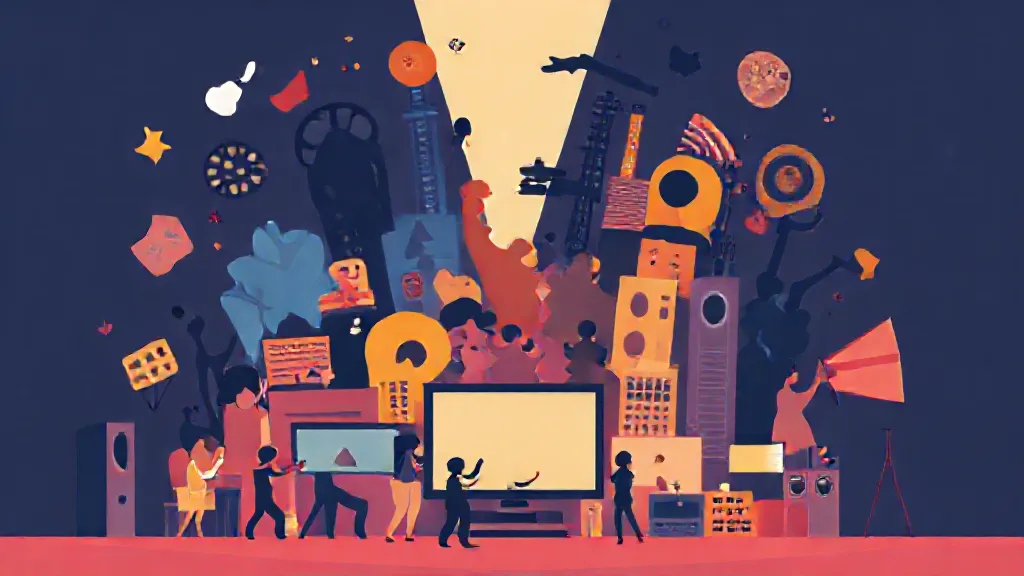Entertainment has always been a mirror reflecting the societal changes and cultural dynamics of its time. From the rise of cinema in the early 20th century to the explosion of streaming services in the 21st century, various forms of entertainment have documented and influenced societal shifts. This article delves into how entertainment not only reflects but also shapes societal norms, values, and changes over time.
The Historical Context of Entertainment and Society
Throughout history, entertainment has evolved alongside societal changes. The emergence of vaudeville and silent films in the early 1900s coincided with the industrial revolution, which transformed social structures and urbanization. These forms of entertainment often addressed the struggles of the working class, portraying their lives and aspirations.
For instance, Charlie Chaplin's films highlighted the plight of the proletariat, illustrating the harsh realities faced by many during that era. This interplay set a precedent for entertainment as a platform for social commentary.
Television as a Reflection of Social Norms
The advent of television in the mid-20th century brought about a new era of entertainment that further reflected societal values and changes.
Shows like "Leave It to Beaver" epitomized the idealized American family of the 1950s, while later series such as "All in the Family" challenged these norms by addressing issues like racism, sexism, and class struggle. This shift in television programming not only mirrored societal changes but also influenced public opinion and cultural discourse, demonstrating the power of entertainment to shape social attitudes.
The Role of Film in Social Movements
Film has played a crucial role in highlighting and advancing social movements.
During the civil rights movement, films like "Guess Who's Coming to Dinner" and "Malcolm X" brought the struggles of African Americans to mainstream audiences, fostering empathy and understanding. Similarly, the LGBTQ+ community found representation in films such as "Brokeback Mountain," which challenged traditional narratives and contributed to the broader acceptance of diverse sexual orientations. These examples illustrate how cinema can serve as a catalyst for change, pushing society towards greater inclusivity.
The Rise of Digital Media and Cultural Shifts
With the rise of digital media and streaming platforms like Netflix and Hulu, entertainment has become more accessible and diverse than ever before. This democratization of content has allowed for a wider range of voices and stories to be told, reflecting the multicultural fabric of contemporary society. Shows like "Orange Is the New Black" and "Master of None" explore themes of race, gender, and sexuality, resonating with audiences and sparking important conversations about identity and representation in a globalized world.
The Impact of Social Media on Entertainment Trends
Social media has transformed the way entertainment is consumed and created, blurring the lines between producers and consumers. Platforms like TikTok and Instagram have given rise to new forms of entertainment, such as short-form videos and influencer culture, which reflect the fast-paced nature of modern society. This shift has also led to the democratization of fame, allowing individuals from diverse backgrounds to share their stories and perspectives, thus enriching the entertainment landscape.
Entertainment as a Reflection of Economic Changes
Economic factors have always influenced entertainment trends. During economic downturns, audiences often gravitate towards escapist content, such as fantasy films and feel-good comedies. For instance, the Great Depression saw the rise of musicals and light-hearted films that provided an escape from harsh realities.
Conversely, in times of economic prosperity, more complex narratives that address societal issues tend to gain traction. This cyclical relationship highlights how entertainment can serve as both a reflection and a response to economic conditions.
Globalization and Cross-Cultural Influences in Entertainment
Globalization has led to a blending of cultural influences in entertainment, resulting in a rich tapestry of stories that reflect our interconnected world.
The popularity of K-dramas and Bollywood films in Western markets showcases how entertainment transcends borders, bringing diverse narratives to a global audience. This exchange not only enriches the entertainment landscape but also promotes cultural understanding and appreciation, reflecting the increasingly global nature of society.
The Future of Entertainment and Societal Change
As we move forward, the relationship between entertainment and societal change will continue to evolve.
Emerging technologies like virtual reality and artificial intelligence are set to redefine how stories are told and experienced. This evolution will likely reflect the ongoing societal changes related to technology, identity, and community. By examining the past and present of entertainment, we can better understand its role in shaping our collective future and the societal values that will emerge from it.
